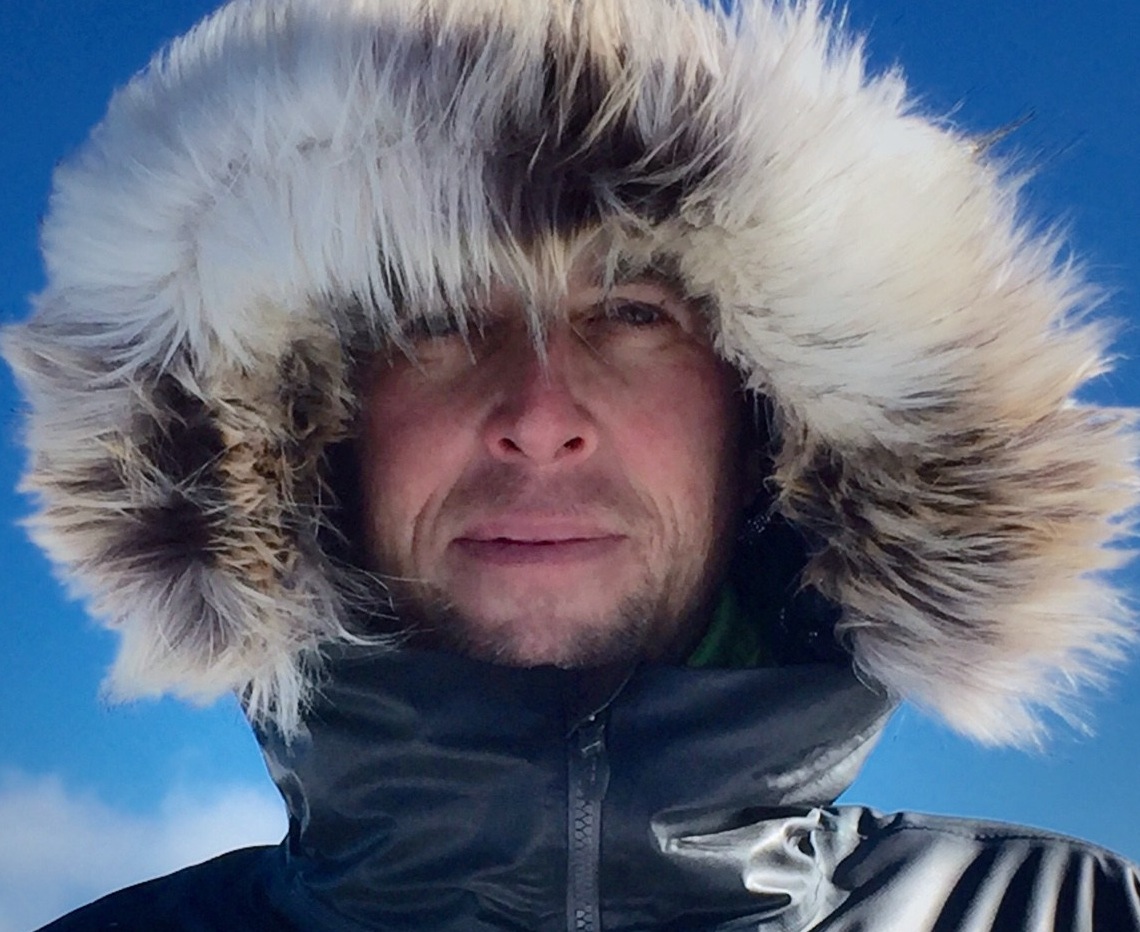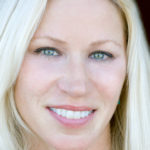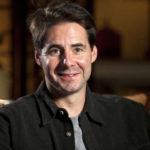Tim Neville is a correspondent for Outside, Ski and Skiing magazines and a frequent contributor to the New York Times travel section. His work has been featured in Best American Travel Writing, Best American Sports Writing and other anthologies. In 2015 the Society of American Travel Writers awarded him second place in the Travel Journalist of the Year grand award division. He has reported from seven continents, loves languages, and lives in Bend, Oregon, with his wife and daughter.
How did you get started traveling?
My family took summer vacations, but never too far from our home on the Eastern Shore of Maryland. Those trips created the initial spark. The inferno that burns within me now came in early high school, when I grew madly in love with French. There is one moment in particular that really kicked things off: In the summer of 1988 I went with my class to Paris. On our last day I got separated from the group and became hopelessly lost. There I was, 15, on my own and needing to figure out my way around this massive foreign city with the clock ticking. Our flight was due to leave that afternoon. I can’t imagine the stress that caused my teacher but I loved it. I mean, I really, really loved it.
Up to this point I’d been a pretty outgoing and generally well liked kid but on the inside I quietly struggled with my self-confidence. At that moment, though, with the world as I knew it stripped away, I knew I could get myself out of the jam. I barged up to strangers unafraid to ask in butchered French how to get to where I needed to go. I could only understand a few words here and there but it was enough. I eventually made it to the airport at the last possible minute, but then I discovered I had lost my ticket and they’d given away my seat. I managed to get a new seat assignment and when I finally stormed onto the plane, sweaty and out of breath to rounds of applause from my classmates (who’d graciously packed my stuff at the hotel and checked my bag for me!), I was shocked to see I’d been bumped up to first class. Can you imagine! I felt so worldly! I ordered champagne and ate shrimp and pretended to read Le Monde. It took some time for it all to harden up but the lesson I learned was this: Throw yourself out into this big, scary world, be brave, and unimaginable rewards await.
How did you get started writing?
The writing came about as an extension of the fact that from then on I wanted to go everywhere. After high school I became an exchange student to Switzerland for a year to really learn French. I went to Montana State University thousands of miles away from home, largely so I could explore the western US. I did another year abroad in eastern Germany, then spent nine months bouncing around Peru and Bolivia. For the first time in my life I knew what I wanted to do — travel and learn languages — but what job would let me do that?
After my time in Switzerland, I found myself reading more, thinking more, and eventually writing more. The first essay I wrote in English 101 was about my year outside of Geneva and how deeply it had affected me. I wrote the last line and felt this enormous upwelling of emotion. It’s embarrassing — the writing was dreadful — and yet the process showed me that the real transformative power of travel came not in living the experience but in sifting through it later to discover something deeper about yourself and the world in which you live.
When I learned how rewarding writing could be, I decided I should try to earn some money at it. I applied for a job at Montana State University’s student newspaper. They said, “Great! We need designers.” I took the job anyway and eventually started writing small stories. That turned into a beat reporter job at the Bozeman Daily Chronicle, which eventually turned into an internship at Outside magazine. From there I was able to launch a freelance career during a period in my life when one $500 assignment would cover all of my expenses for a month. Fourteen years later, here we are and it just blows me away. I mean, right now, I’m on a boat off the coast of Antarctica working on a story for a fee that will support my family of three for more than a month. You can’t get more grateful than that.
What do you consider your first “break” as a writer?
I think I’ve had many, many breaks. I was born a white, straight male into a nurturing middle-class family who encouraged me through and through. That’s as big of a break as it gets, really.
But more in the spirit of the question: Landing the internship at Outside was my biggest foot in the door. I believe writers who have made a great go of it are either brilliant or have worked very closely with people who are. Outside is full of incredibly smart people. They let me stare over their shoulders and watch how the magic happened. I sat in on planning meetings, saw how editors reacted to pitches, how they edited stories, how a story actually worked. Fellow interns and editors ended up on staff at other magazines. Now when I pitch a story, chances are pretty great that I’m pitching a friend or colleague who knows what I’m capable of. That’s nine-tenths of the battle.
What is your biggest challenge on the road?
Airplane seats. I’m 6’8″. Fitting in them is a challenge I will never overcome.
The biggest challenge, however, is a self-imposed one. Every time I head out on assignment I place this enormous pressure on myself to come back with the greatest story ever. That’s totally unrealistic, of course, but you sell an idea, people put all these resources into your idea, and then it’s up to you to deliver something great so those people will buy your next idea.
That means I typically hit the road feeling anxious and overwhelmed. To combat that, I work my tail off. I read every sign, every pamphlet. I ask a million questions and then a million more. I obsess over details and backstories, history and scenes. I walk around the city one more time, at night, in the rain, afraid I’ve missed something no true writer would have ever missed. I end up with far more material than I could ever use.
I think that’s ultimately a good thing because it generally means I’ll come back with at least something I can use. (But what if I don’t!) I need to learn how to be more efficient. That means reining in my curiosity, which can feel like a buffalo rampaging around in my head. Truth is, I love my buffalo just the way she is.
What is your biggest challenge in the research and writing process?
The research challenges are basically the same as the challenges I face on the road: Staying focused. That really comes true when I sit down to write. One of my favorite writers, Kevin Fedarko, was an editor at Outside while I was there, and he would organize these writing seminars on his own time at his house for us interns. I will always love him for that. He once described the challenge as a river full of rapids where you need to pick a line or you’ll get swallowed up by the chaos. More often than not, I still get swallowed up.
Because of that, the writing process can be misery. I have a terrible time knowing exactly what my story is before I sit down to write, which shows just how much of an amateur I really am. I struggle with structure. I’ll spend hours on these colorful tangents that have nothing to do with the story. I wander into these literally quagmires of my own doing, where a hasty retreat and a fresh start would be the smart move, yet I can’t do that because I’ve invested so much time making that muck pit the muckiest muck pit ever. I make the same mistakes over and over.
And yet the rewards for persevering are indescribable. Every time I see a piece of mine appear in print it feels like proof that the universe loves me.
What is your biggest challenge from a business standpoint?
So many challenges! Managing my cash flow is always tough because some magazines have extremely unprofessional timescales when it comes to cutting checks. Imagine hiring a plumber to install a sink and then saying, “Thanks! I’ll pay you in six months!” Most difficult of all is taking the emotion out of deciding which jobs to take. To help with that, I actually have a business plan. It’s the English major’s version of a business plan but it still helps. An offer to go sailing around the South Pacific might be fun but if I’m gone for two weeks and have to spend another week writing and revising, all for a $1,000, the business plan lets out this horrific scream.
Have you ever done other work to make ends meet?
I got hired to do a non-profit’s newsletter once. In the very beginning I also worked a couple of days a week as a copy editor at a newspaper in New Mexico. The wages covered my $250 a month rent and freed me up to go after bigger stories as a freelancer without worrying about making ends meet. In 2008 I took a break from freelancing to be a staff writer for swissinfo.ch, a Swiss news agency based in Bern. I moved my family back to the States in 2011 and immediately started freelancing again. Last year the New York Times hired me to be an “expert” as part of the paper’s “Times Journeys” endeavor. That was super fun. They sent me with clients on outfitted trips to Uzbekistan and Turkmenistan and on a hike around Mont Blanc. I had to give a series of lectures about the areas but I wasn’t the guide and I didn’t have to write anything for publication. In a way, it was the greatest job ever because I got to report the heck out of whatever I found interesting without having to come up with an actual story.
What travel authors or books might you recommend and/or have influenced you?
Tim Cahill and Bill Bryson exacted a big influence on me with their humor. Robert Kaplan’s Balkan Ghosts took such a massive topic—the Balkans — and found the most beautiful line through that chaos. I wish I had Colin Thubron’s vocabulary and descriptive talents. For people looking to really geek out on the mechanics of a story, Jon Franklin’s Writing for Story
is a classic, of course.
Mainly though, I think you need to find the writers writing the stuff you’d like to write and read everything they do. For me that includes old Outside hands like Kevin Fedarko, Brad Wetzler, Marc Peruzzi and Eric Hansen. Marc Peruzzi now runs his own magazine, Mountain, and that guy is a master of structure. One of his senior editors, Tracy Ross, is so smart that she can turn my most pathetic drivel into something worthy that still sounds like me. Stories by Patrick Symmes, Bill Donahue and Joshua Hammer are always full of examples of how the pros get it done. Christopher Solomon, a contributing editor at Outside, is a dear friend of mine and I’d be lost without studying his work.
What advice and/or warnings would you give to someone who is considering going into travel writing?
Start young when your responsibilities are small and easily met. Be prepared for work and play to become one, which can often frustrate a spouse down the road. Get an internship if you can, buddy up with an editor willing to take you under a wing, and learn everything you can from that person. Accept the fact that you don’t know as much about writing as you think you do. One reason why I’ve been successful isn’t because I’m a magnificent writer — which I most certainly am not — but because I have made it my mission to be the easiest writer an editor could ever work with. I’ve seen so many aspiring writers crash and burn because they got cocky and fought editors at every step. Remember: they want to make you sound smart and chances are they’ve been doing this a lot longer than you have. Be grateful for their services and chances are high they’ll want to work with you again.
Perhaps most important of all: Insist you get paid for your work. If you work for free, you undercut everyone else trying to make a living and weaken your own chances of doing the same. No matter what they say, people who offer you “exposure” instead of a fee are exploiting you. They’re getting paid. You should be too.
What is the biggest reward of life as a travel writer?
There’s nothing greater than being able to support yourself doing what you love. If I get obsessed with, say, igloos, I can find a way to build a village of them and write about it. (True example). Filling a passport with exotic stamps is fun but the real rewards are coming home with a greater understanding of the world, of myself and of all the wonderful (and not so wonderful) things happening around us. Life as a travel writer can be difficult but it is never, ever boring.





